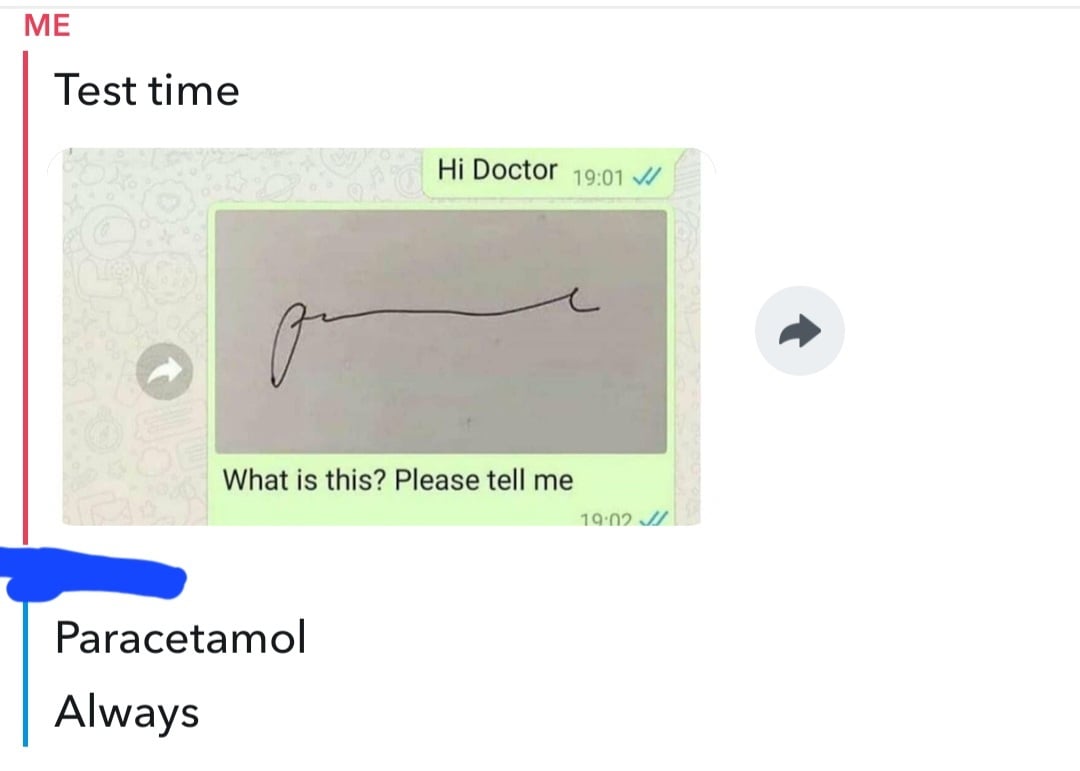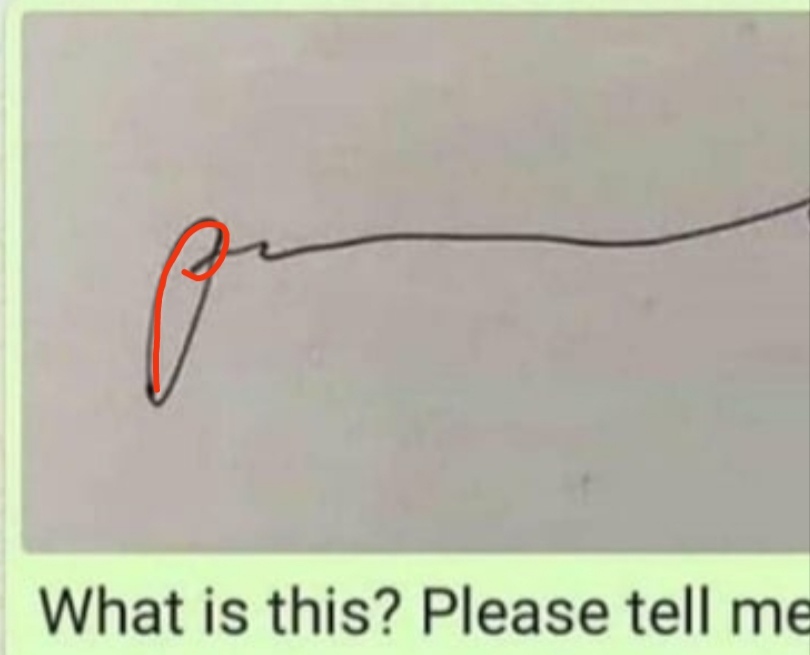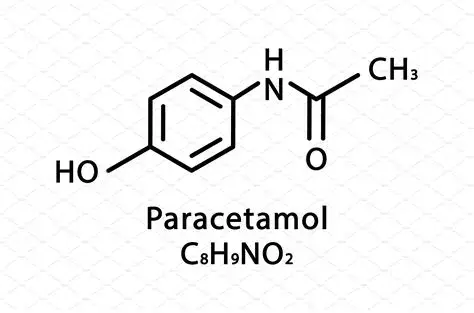Decided to test a former pharm tech.

The runes… decoded
Thanks for sending and sharing, that’s incredible to the point it’s hard to believe
how
i guess the p and l are the important bits and the rest can just be inferred, since paracetamol is very commonly used and they’d get tired writing it in detail every time. other more specialized drugs with p___l (or close to it) as its name would have more squiggles i assume.
It’s (shorthand)[teeline.online]. It says “prc(t)ml” with the p being in the obvious spot (though it should be just a downward line), the r is the diagonal line after it, the c is the little curl, the t should be more pronounced, but it should be a horizontal line slightly above the rest, the m is a concave-down swoosh, and the l is the final curl. No vowels b/c they’re largely redundant.
Runes
I get the L, but how did you get the P? At best it’s an O, at worst it’s a D.

The rest is just cursive shit idk
Ignore the left side of the oval, then you get a lower case p with a looong stroke down and a teeny tiny )-shape.
Oh so there’s tactical bamboozle stroke too?
It’s a super common prescription and most doctors probably couldn’t spell it offhand. Combined with dosing info it would be more obvious. Also if they do happen to be wrong it’s unlikely to actually cause harm with acetaminophen/paracetamol.
Edit: another benefit is disguising to a patient that demands something to take. Essentially a placebo.
In addition, there’s a psychological phenomenon where our brains only need the first and last letter of a word in the right place, and all the right letters in between in any order, to suss out a word. Our familiarity with a lngaauge will put it together, so presumably the same is true for healthcare providers’ common words.
Note: I included an example of this in my comment
In adtidion, trehe’s a pshyocloigal pheonmneon where our bairns olny need the fsrit and lsat lteter of a word in the rghit pclae, and all the rghit ltertes in bteewen in any oedrr, to suss out a word. Our faiilamirty with a lagnuage wlil put it toehgter, so pseurambly the smae is treu for haehtlcare pvoerdirs’ cmmoon wdros.
FTFY… I read this just as fast as the original.
Your e-----------e d-----t w----k w-----------t the c-----------t of the l---------s i-----------------n.
If they’re commonly used words the scribbles end up becoming a form of shorthand that doctors can recognize, but they’re meaningless to anyone who isn’t already familiar with them.
“Your example doesn’t work without the context of the (something) intention.”
How’d I do?
Pretty damn close.
“Your example doesn’t work without the context of the letters inbetween.”
Inbetween is not a word.
Not sure but I think you mean chunking. When you know a word you don’t need to read all letters by themselves but know roughly what the word looks like as a whole, so you can read it faster. This also inrotrozutes a failure rate of course, but works pretty well.
I love that effect, but sometimes it can fail. For example:
Our familiarity with lineage will…
Is how my stupid ass brain read it first and I knew what was up
Statistics, I think
 Omg it actually works
Omg it actually works
Funny, but also not. Just Googled because I couldn’t remember:
“According to the Institute of Medicine, physician’s illegible notes lead to approximately 7,000 deaths annually.”
Seems unreal. Even if it was half that…that’s a lot of people. If I was getting prescribed drugs, I want it LEGIBLE. Typed up would be great. I just don’t trust that shit, and neither should any of you.
some said i was destined to be a doctor with my handwriting and family. i decided to break the cycle and become a videographer that barely scrapes by. my family is… they like the videos i make of our get togethers…
at least i haven’t accidentally killed anyone.
at least I haven’t accidentally killed anyone.
Yet, there’s still time, I believe in you.
This is likely why I haven’t seen my doctor write anything for over a decade. Literally everything is done on the computer now. There’s a rolling computer in each room. The only handwriting I saw was by the nurses on a big whiteboard when my wife was giving birth. Just to pass notes and write times.
As someone who’s done IT work for a medical facility, that’s not as much of a step up as you might think.
Watching my doctor fill out my digital chart to avoid these spelling mistakes….
me: I take guanfacine
Doctor: oh ok cool you take mucinex?
me: no, not guanfanesin, guanfacine.
Doctor: oh, ok. Got it
Doctor: ….
Me: ….
Doctor: and what milligram mucinex do you take?
OMG I just had this exact conversation with my doctor!
This literally just happened to me at the doctor’s office. I brought up that I’m interested in trying guanfacine to help with my ADHD and blood pressure and my new doctor tried to correct me… I should probably look for a new doctor.
deleted by creator
Back in the day I used to work at one of the largest hospitals in the US. In my last year there they had started having doctors record their notes, issues order, and prescriptions, on an audio file, using and issued microphone. Then that stuff was sent to a group of people transcribing everything in text. these scribes would also fill out forms for the orders and prescriptions. they did this in response to a series of lawsuits they lost badly.
Here in the UK and (if I’m remembering correctly) back home in Canada, I have always been handed a print out of my prescription with a signature.
Mine are usually faxed to the pharmacy (manitoba, Canada)
I’m from Vancouver(ish), BC.
Same in Ontario. I’ll get a paper copy if I ask for one, but otherwise new scripts are faxes direct to the pharmacy. Even paper copies are a printout though. I haven’t gotten a handwritten prescription in well over a decade now
No surprise. Lead is very toxic. /s
Meanwhile, here in Sweden, when I get a perscription, my doctor types on his computer for five min, I then walk to any pharmacy, hand them my ID, of they have it they will offer a cheaper alternative, if they don’t have any of the medicine, they will tell me which pharmacy does, if none has it they will order it for me.
Same here in Italy, but it took COVID to get them off their asses and finish the system for this that was already 90% there
Here in Germany it was introduced last year (I think). Heard it still causes trouble on the organization side, but as a patient it works great.
Oh it’s a problem here to. You do not want to know how much information is passed on through rapidly scrawled sticky notes in our healthcare system - particularly in emergency situations.
It even works for animal medicine. My cat needed some and the pharmacy just ordered it!
Works for a couple of years in Poland. You give them your personal identity number and a 4 digit number you get from a doctor (or you can go to a government website and get it from your perscriptions directly) and you get your perscription. We also have websites dedicated to finding medication, available to everyone. You can even sometimes reserve it online.

Looks kinda the same
p-------------l
Nah, I can give them p-r-------l at least.
Peenol™️ - it’s for the peen™️
I see it
I don’t.
Paracetamol
Lol, that sent me
I just see “oishi.” Tasty?
Where is the し?Do Japanese people have some kind of Schreibschrift for kana, so many new questions
It’s right at the end!
Japanese has a very elaborate cursive system that is part chinese caligraphy and part native. If you’re familiar with hiragana and katakana then think of each character as normal chinese caligraphy BUT the chinese characters that were adapted for japanese grammar in the 700-800 ADs get written VERY quickly and lots of strokes are taken out so you need to learn to identify the writers intention and understanding in context is absolutely essential. It takes a ton of practice and memorizing all the different permutations and their changes over time.
I’m learning Japanese for more than a year by now. I know hiragana, katakana and a small amount of kanji by now. I don’t really know a lot about calligraphy, I purposefully avoid learning to write kanji and their stroke order.
They started to draw a dick but stopped when they realized it would be unprofessional
It’s a sperm
You don’t need prescription for paracetamol afaik, could be prescription strength I guess
If it’s in a hospital setting any medication given likely needs an MD order.
Might not be a prescription, could be release forms or something like that
Or that, for sure
If you need more than I think it’s about 16 in a single transaction you do in the UK I think.
Or that you want to be able to put it through insurance / benefits.
How much do MDs actually write a day? Are they saving that much time by doing that shit?
40% of the visit is typing. They need to keep history, write the perscription etc. Nowadays they do that on PCs. Though I used to have a doctor that wrote everything on a typing machine. You’d tell him what’s wrong and then he’d write it, often with tons of typos (he wouldn’t start over). Obviously meds were always correct, it was just funny seeing a doctor butchering words and being unable to correct himself.
Pre-electronic records, yes they wrote a lot. Lot’s of things were done in shorthand or with forms to reduce the writing. It’s also that a doctor’s time is valuable, saving 30 seconds on a prescription is a lot when you write 10s or hundreds per day.
A fucking ton. I swear, 60% of our job is writing stuff.
How?
What about the little story about red riding hood along that last twisty bit? It’s funny because of the British accent, clearly nope, specially not on percetamenofemol as prescribed.
deleted by creator

















